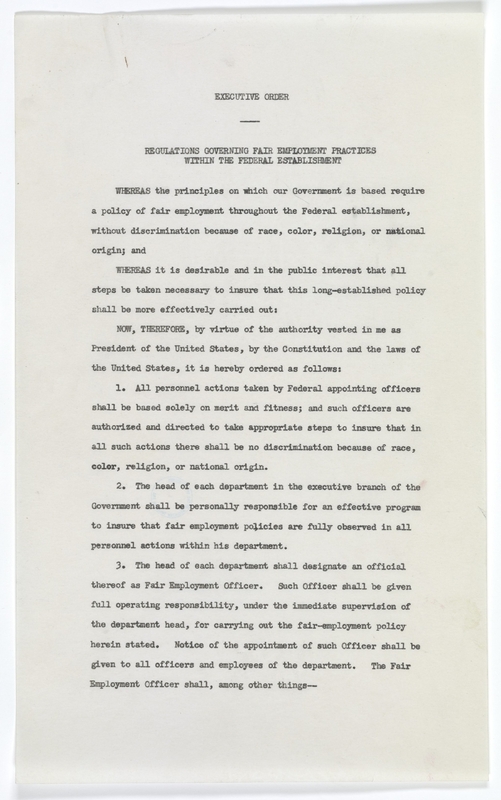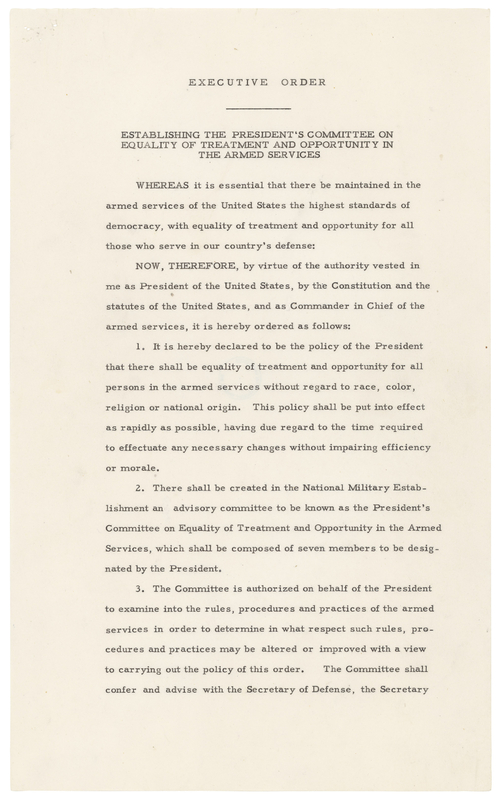Summer of 1948: A Step Forward for Equality for all in the U.S. Armed Forces
In 1940, President Franklin D. Roosevelt upheld segregation in the Armed Forces, believing integration would threaten military efficiency and increase racial tension. President Harry S. Truman eventually organized a Presidential committee and based part of his 1948 campaign on civil rights. After winning that election, Truman was stymied by congressional inaction and called for a special session of Congress.
On July 26, President Truman signed Executive Orders 9980 and 9981 ending racial segregation in the federal workforce and in the U.S. Armed Forces. Without Congress’s blessing, the President of the United States can issue an executive order, which carries the force of law. Truman and his advisers hoped a desegregated military and workforce could be a model for the rest of American society.
A month earlier, Truman had signed the Women's Armed Services Integration Act. The act granted women the right to serve as permanent, regular members of the Army, Navy, Marine Corps, and the recently formed Air Force. In the 75 years since, more than two million women have served in our Armed Forces.


Featured Image: Famous [African American] regiment arrives home on the France. New York's famous 369th (old 15th) Infantry [African American] troops arrive at Hoboken, New Jersey. They are the only regiment which never had one of their men captured and never lost a foot of ground or a trench, also the only unit in the American Expeditionary Force which bore a state name and carried a state flag, 1917-1918. National Archives, Records of the War Department General and Special Staffs View in National Archives Catalog